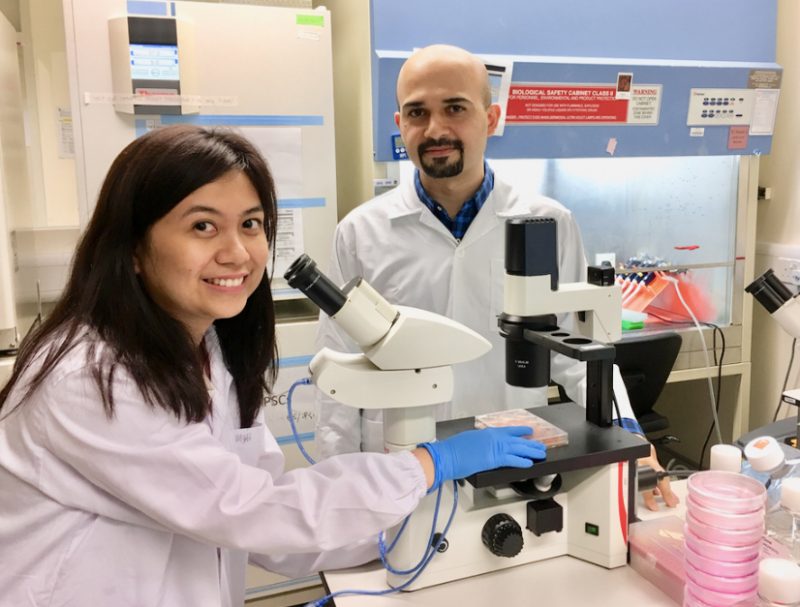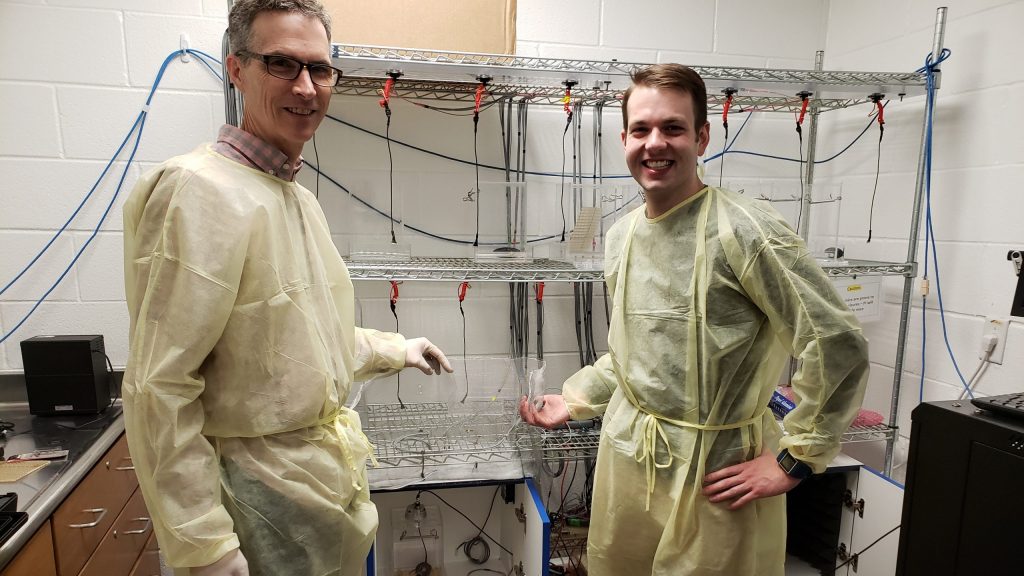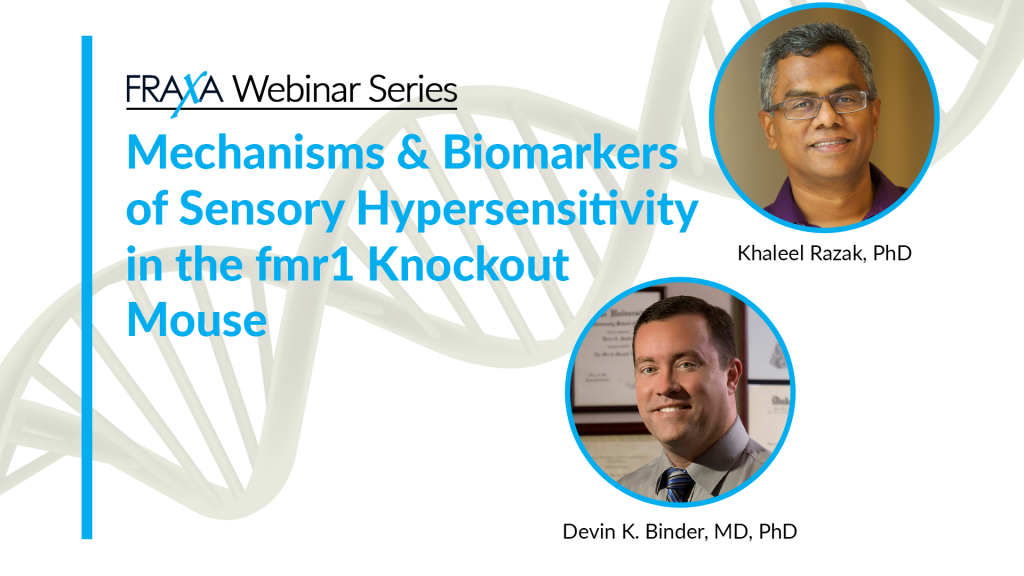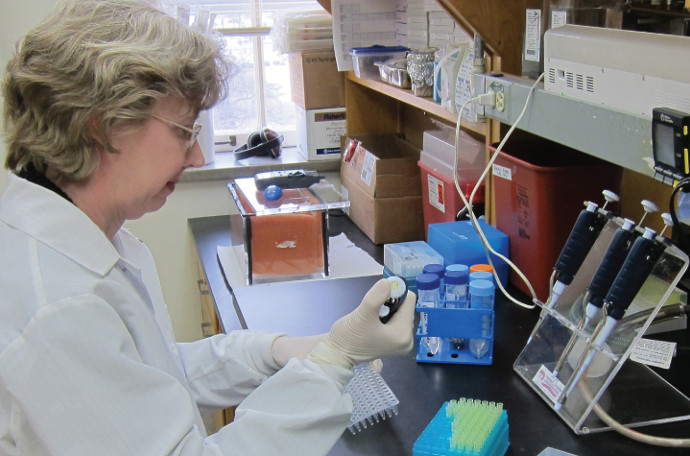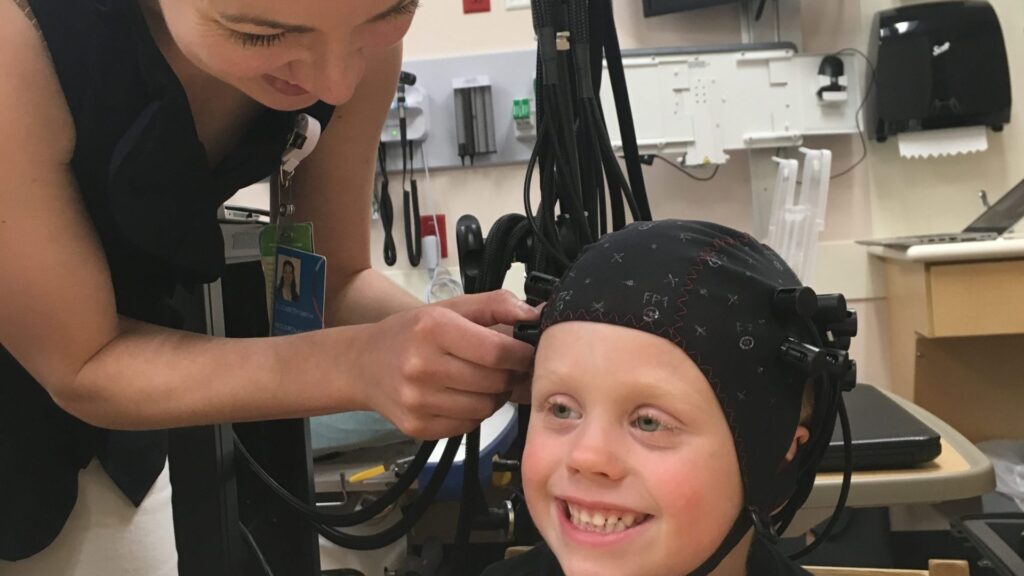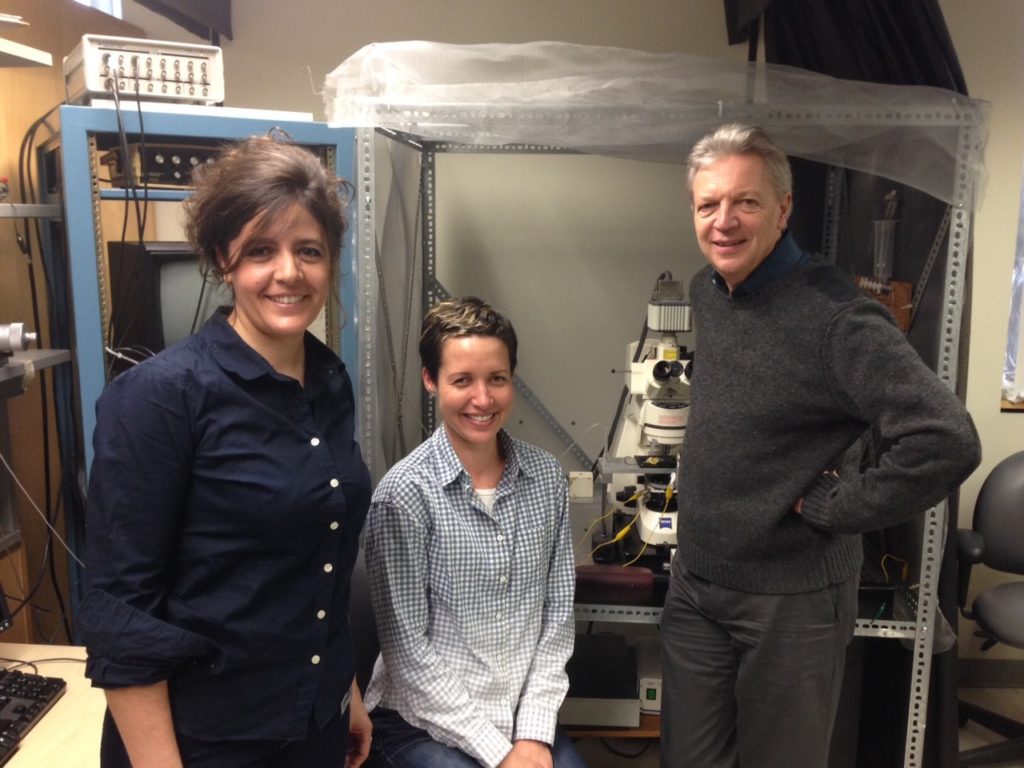Genome-wide Screen for FMR1 Reactivation in Human FXS Neural Cells
This team aims to turn the FMR1 gene back on in Fragile X by identifying factors that reactivate the silenced gene and restore production of the missing FMRP protein.
Yale Researcher Dr. Elizabeth Jonas 1:1 with FRAXA
We talk with Dr. Elizabeth Jonas, Professor of Internal Medicine and Neurology at Yale School of Medicine, about her new research suggesting that leaky mitochondria cause some symptoms of Fragile X syndrome. Leaky membranes may also be involved in Parkinson’s Disease and other diseases.
Auditory System Dysfunction and Drug Tolerance in the Fragile X Mouse
A $90K FRAXA grant will help uncover why Fragile X causes sound hypersensitivity and test ways to correct brain circuit dysfunction linked to auditory overload.
MicroRNA Mediated Astroglial GLT1 Dysregulation in Fragile X
The team studied how glial cells, especially astrocytes, affect Fragile X. They tested microRNAs to restore GLT1 and reduce excess glutamate linked to brain hyperexcitability.
Scientists Find a New Way to Reverse Symptoms of Fragile X
FRAXA Investigator and MIT Professor Mark Bear and his colleagues have identified a valuable new target for Fragile X therapeutics: GSK3 alpha. Several FRAXA research teams previously identified GSK3 beta as a treatment target for Fragile X. The catch is that, so far, GSK3 beta inhibitors have proven too toxic for regular use. Dr. Bear’s new discovery opens up the possibility of developing more selective compounds with less toxicity and fewer side effects. Interestingly, lithium inhibits both GSK3 versions – alpha and beta.
Cholesterol-Dependent Changes in Fragile X Astrocytes
Astrocytes and cholesterol metabolism are altered in Fragile X. This research uncovers how these changes affect the brain and may reveal new treatment targets like lovastatin.
Ketogenic Diet Eases Symptoms in Fragile X Male Mice
Westmark Lab is studying sleep patterns in Fragile X mice, working with UW-Madison to develop tools that speed EEG data analysis
fNIRS to Measure Treatment Response in Young Children with Fragile X
The team tested functional near-infrared spectroscopy (fNIRS). fNIRS uses light sources and sensors on the scalp to build a heat map of the brain in action.
Results Reported: Using EEG Responses to Sound for Fragile X Drug Discovery
Jonathan Lovelace, a FRAXA funded Postdoc at UC Riverside, has made some exciting EEG findings over the past few years studying auditory hypersensitivity in mice and therapeutic drug treatments. A big obstacle in FXS research has been establishing reliable, unbiased, and translation relevant biomarkers that can be used to determine the effectiveness of therapies. One of the most important discoveries they have made is the striking similarity in EEG biomarkers between mice and humans.
Potassium Channel Modulators to Treat Fragile X
FRAXA-backed Yale discoveries tied Fragile X to Kv3.1/Slack channel defects—leading to a partnership with Autifony to develop targeted treatments.
Targeting Adiponectin to Treat Fragile X Syndrome
Boosting adiponectin, a hormone that regulates metabolism, may improve cognition and behavior in Fragile X. Early results suggest it can restore brain plasticity.
Deep Molecular Profiling of Fragile X Mouse and Human Cells
Studying human Fragile X neurons from stem cells revealed key gene changes not seen in mice—showing why some treatments failed and guiding better future therapies.
Targeting Mitochondria in Human Fragile X Syndrome Neurons
Fragile X brain cells have fewer, smaller mitochondria. This team tested mitochondria-boosting drugs that improved symptoms in mice to see if they can help humans.
Correcting Sensory Processing in Fragile X Mice by Modulating Kv3.1
FRAXA funded UCLA research on a Kv3.1-targeting drug to ease sensory issues in Fragile X. This work built on Yale-led work now also being pursued by Autifony Therapeutics.
A Day in the Lab with FRAXA Investigator Dr. Tue Banke
Recently Laurie Bowler and her 19-year-old son Casey, who has Fragile X syndrome, visited FRAXA research grant recipient Dr. Tue Banke at his University of Washington laboratory. We hope you enjoy Laurie’s wonderful description of their adventure! FRAXA awarded $90,000 to Dr. Banke to study the Developmental Profile of Glutamatergic Synapses in Fragile X.
Gene Therapy Translational Studies for Fragile X Syndrome
With FRAXA funding, researchers tested AAV gene therapy to restore FMRP in Fragile X mice, measuring safety, effectiveness, and brain activity to inform future trials.
Which is the right FMRP for Therapeutic Development of Fragile X Syndrome?
Many forms of FMRP exist in the brain. This project aims to pinpoint which versions of the protein are most critical to restore for effective Fragile X treatments.
Developmental Profile of Glutamatergic Synapses in Fragile X
A FRAXA fellowship helped reveal how glutamate receptors at synapses develop differently in Fragile X, offering clues to improve learning and memory.
Reintroducing FMRP via Tat to Reduce Symptoms of Fragile X Syndrome
A FRAXA-funded team found that a shortened FMRP protein, delivered with a Tat “carrier,” restores brain signaling and improves behavior in Fragile X mice.
Ganaxolone Fragile X Clinical Trial Showed Disappointing Results
Ganaxolone, an experimental drug from Marinus Pharmaceuticals which targets GABA receptors, did not show promise for Fragile X syndrome in a clinical trial.
FXS Patients’ Social Deficits are Linked to Social Anxiety, Eye-tracking Study Says
Dr. Craig Erickson and colleagues at the University of Cincinnati used eye-tracking technology to understand sociability in Fragile X syndrome. This study affirms what so many parents, caretakers, and educators suspect: people with fragile X want to be social, and it is anxiety – not lack of interest – which usually hold them back. If anxiety could be reduced, more sociability would likely follow. Dr. Erickson is a Fragile X expert and FRAXA investigator who is currently conducting a Fragile X clinical trial of an investigational new drug.
Screening 2,320 FDA-Approved Drugs for Potential Treatment of Fragile X
FRAXA funded a screen of 2,320 FDA-approved compounds in the Fragile X fly model to identify hits that improve memory and social behavior for advanced testing.
Novel Modulators of Potassium Channels to Treat Fragile X
FRAXA-funded Yale research showed disrupted Kv3.1 and Slack potassium channels impair neuronal timing in Fragile X. Published findings support Kv3.1 as a treatment target.

